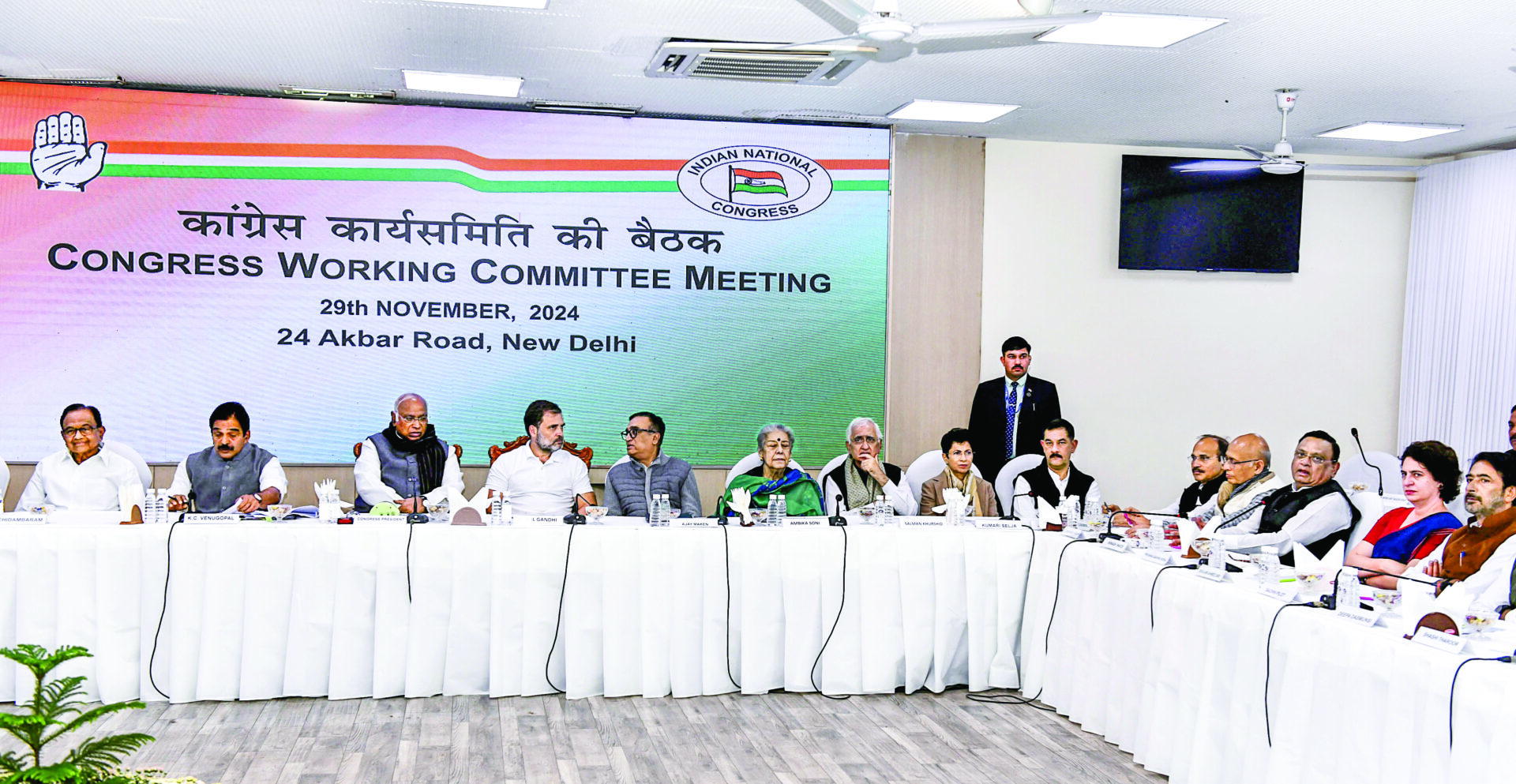Before EVMs, elections used paper ballots prone to rigging. EVMs, first used in 1982, have strong security and prevent tampering.
NEW DELHI: In the wake of significant electoral defeats, the Congress party is advocating for a return to ballot paper voting, expressing concerns over the reliability of Electronic Voting Machines (EVMs). During the Constitution Day event, Congress President Mallikarjun Kharge questioned the efficacy of EVMs, stating, “Votes from SC, ST, OBC, and poor communities are being wasted.” He announced plans for a nationwide campaign to reintroduce ballot papers, similar to the Bharat Jodo Yatra. Kharge further suggested that EVMs be stored in warehouses in Ahmedabad, asserting that the Bharatiya Janata Party (BJP) would realize its standing once elections revert to ballot papers. The Congress Working Committee has also decided to campaign against EVMs, aiming to involve other political parties in this initiative. Senior Nationalist Congress Party (NCP) leader Sharad Pawar has directed his party’s defeated candidates to gather evidence of alleged EVM tampering. Following this, Nana Patole announced that Congress would conduct a signature campaign across Maharashtra against EVMs, contending that votes were stolen and pledging to fight for ballot-based elections under LoP Rahul Gandhi’s leadership.
However, just three days prior, the Supreme Court dismissed a public interest litigation seeking a return to ballot paper voting. A bench comprising Justices Vikram Nath and P.B. Varale remarked, “What happens is, when you win the election, EVMs are not tampered. When you lose the election, EVMs are tampered (with).”
The court noted that EVMs are secure and have eliminated issues like booth capturing and bogus voting.
Despite these judicial affirmations, Congress and its allies continue to question the impartiality of EVMs and the Election Commission. Historically, figures like T.N. Seshan, M.S. Gill, and S.Y. Quraishi have been esteemed for their integrity as Election Commissioners. Notably, Seshan contested elections as a Congress candidate post-retirement, and Gill served as a Congress Rajya Sabha member and minister. Nevertheless, former Chief Election Commissioners such as Naveen Chawla, S.Y. Quraishi, and O.P. Rawat have publicly affirmed the robustness of India’s EVM system, deeming it among the best globally. They assert that the machines are tamper-proof, with extensive safeguards including sealing in the presence of party representatives and comprehensive monitoring. The Election Commission has also implemented Voter Verifiable Paper Audit Trail (VVPAT) systems to enhance transparency, with the Supreme Court mandating the counting of VVPAT slips from five randomly selected EVMs per assembly constituency.
In Maharashtra, Congress leaders have expressed dissatisfaction with their electoral performance. G. Parameshwara acknowledged the party’s poor showing and criticized allies like the Nationalist Congress Party and Shiv Sena for ineffective campaigning. He noted that internal confusion and lack of cohesive strategy contributed to the disappointing results, particularly in regions like Vidarbha.
Before the adoption of EVMs, elections relied on paper ballots, which were susceptible to malpractices such as vote rigging, bogus voting, and booth capturing. The Election Commission introduced EVMs to address these issues, with Bharat Electronics Limited (BEL) and Electronics Corporation of India Limited (ECIL) developing the machines. The first use of EVMs occurred in 1982 during a by-election in Kerala, leading to their widespread adoption in subsequent years. EVMs incorporate multiple security measures: they are standalone devices, preventing hacking; software is programmed onto one-time programmable chips, making alterations impossible; and they undergo rigorous checks, including mock polls and sealing procedures overseen by party representatives. Additionally, storage rooms for EVMs are secured and monitored by paramilitary forces, ensuring their integrity.
An independent Technical Advisory Committee, comprising professors from various Indian Institutes of Technology, oversees the EVM process. The Supreme Court has previously upheld the use of EVMs, recognizing their role in eliminating electoral malpractices. The introduction of VVPAT provides a paper trail for verification, enhancing voter confidence. The Supreme Court has directed the Election Commission to implement VVPATs, acknowledging them as essential for free and fair elections.
In summary, while the Congress party advocates for a return to ballot papers citing concerns over EVM reliability, judicial bodies and election authorities affirm the security and efficacy of the current electronic voting system. The debate underscores the ongoing discourse on electoral integrity and the mechanisms that best uphold democratic processes.

